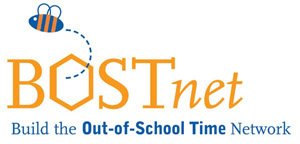Many people in the field of out-of-school time programs are grappling with the realities of working with an expanding definition of "disability" and with fewer and fewer resources. At a recent training on Inclusion, the staff were aware of what strategies they needed, but did not have the time to provide these supports. They asked, if children with special needs are included in our programs without supports, is this a service to any of us?
For many programs, this is not a theoretical issue. Many programs are identifying larger percentages of children and youth with what they consider emotional or cognitive disabilities. Many of these children are on vouchers as DSS prioritizes children in the system, many of whom OST practitioners feel have untreated or undiagnosed disabilities. As we work on the BOSTnet All Means All Conference, we have to consider what solutions are there in front of us. A leading lawyer said it best about teachers that "[teaching] is not about being brilliant, it is about being a human being" and we so often are told to follow procedures rather than our own common sense. Are there some approaches to inclusion that do not take additional resources (time+money)?
The LOYD community is starting to grapple with large questions as the field goes through a transformation in stressful times. We are not only asking how we do inclusion, we are perhaps having to examine what it means to have an out-of-school community and what is the identity of the field.
15 years ago





